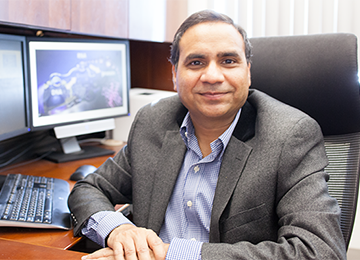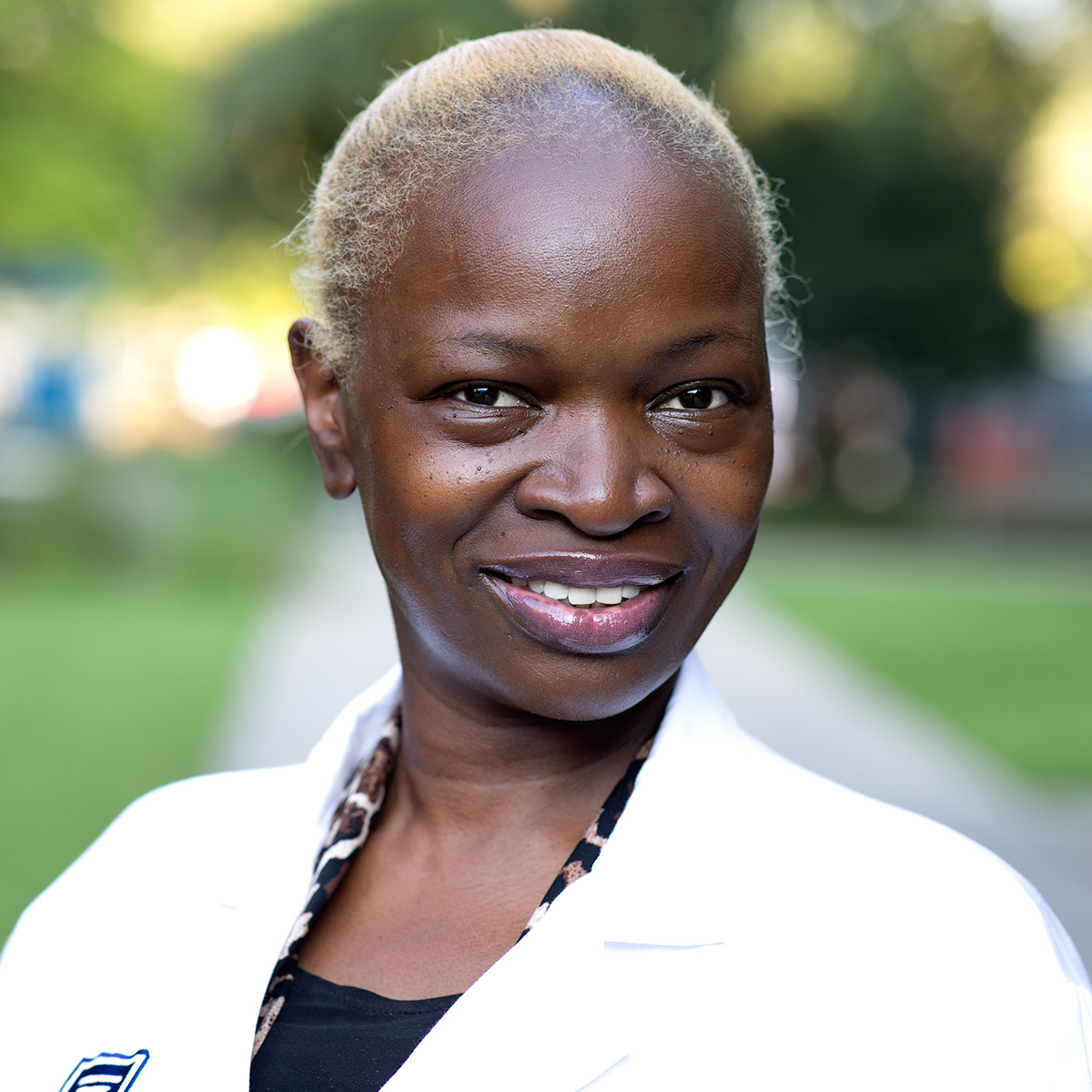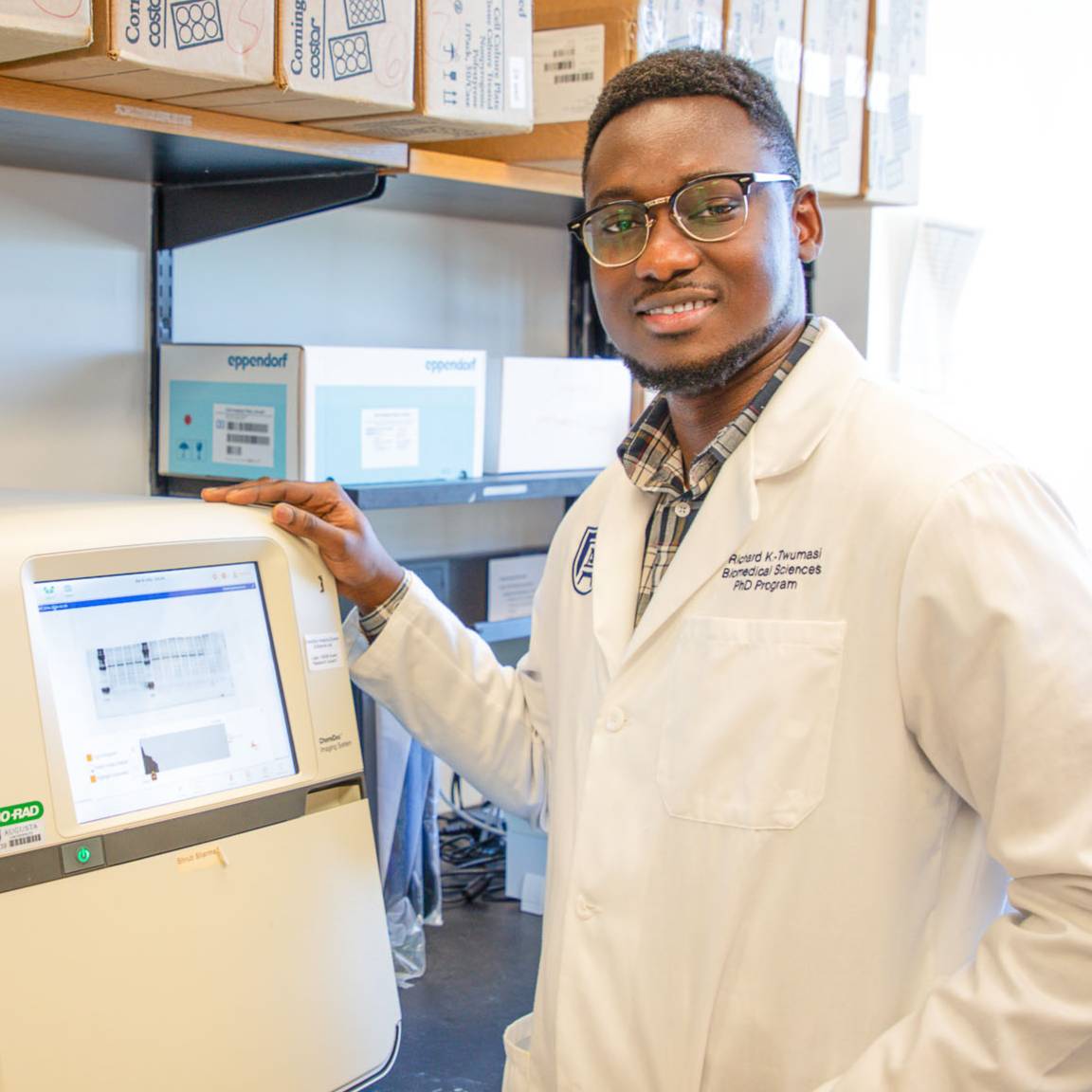From Genomic Discovery
To Precision Medicine
- Augusta University
- The Graduate School
- Biomedical Sciences
- Genomic Medicine
Genomic Medicine
The Genomic Medicine PhD program at Augusta University prepares you to harness the power of genomics and big data to solve real-world medical challenges. Integrated into Augusta’s collaborative research ecosystem, you’ll gain hands-on experience with advanced sequencing technologies and bioinformatics tools to explore the genetic underpinnings of disease. Through mentorship and partnerships with clinicians and researchers, you'll contribute to discoveries in autoimmunity, cancer, obesity, hypertension, and more. Graduates of the Genomic Medicine PhD program pursue careers in academic genomics labs, biotech and pharmaceutical companies, clinical genomics research, and government health agencies—with many launching their careers through prestigious postdoctoral fellowships in data-driven biomedical science.
Turn genetic insights into life-saving breakthroughs. Start your journey in the Genomic Medicine PhD program and help shape the future of precision healthcare.
Admissions Contact
Lauren Schoem, MS
Assistant Director, Graduate School Admissions
(706) 721-9516
BIOMED@augusta.edu
Program Director
Meet Current Students | Explore Faculty Research

"I invite you to join our community of genomic and proteomic scientists seeking to find solutions to disease prediction, prevention and the delivery of personalized medicine."
Program Contacts
Ashok Sharma, PhD
Program Director
assharma@augusta.edu
Debbie Ellison
Program Administrator
(706) 721-3433
dellison@augusta.edu
Student Testimonials

"The Genomic Medicine program has equipped me with advanced skills in drug testing, computational biology and data-driven research. This has enabled me to tackle complex biomedical challenges with a multi-disciplinary approach in oncology and precision health."
- Trudie Ritter

"The program has challenged me to think critically and independently as a scientist. I’ve become more confident in designing experiments, executing them, and clearly communicating my findings—even to non-specialist audiences. "
- Richard Kontoh-Twumasi
The Graduate School
The Graduate School at Augusta University facilitates ground-breaking research and ensures outstanding education. We create an environment that embraces and empowers the next generation of scholars and investigators, supports faculty and staff, and fosters meaningful relationships and collaborations among students across our programs and colleges.
Explore More